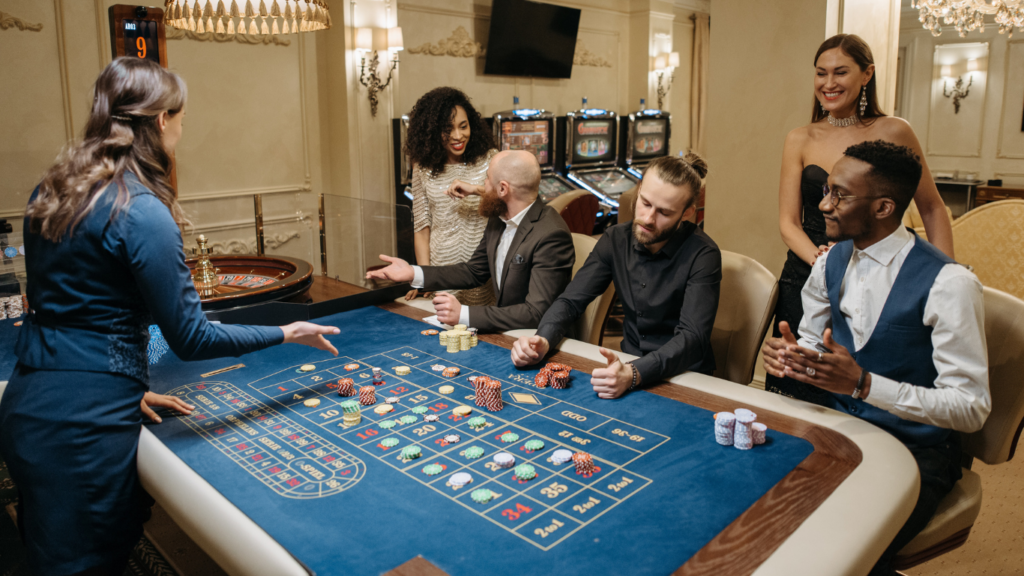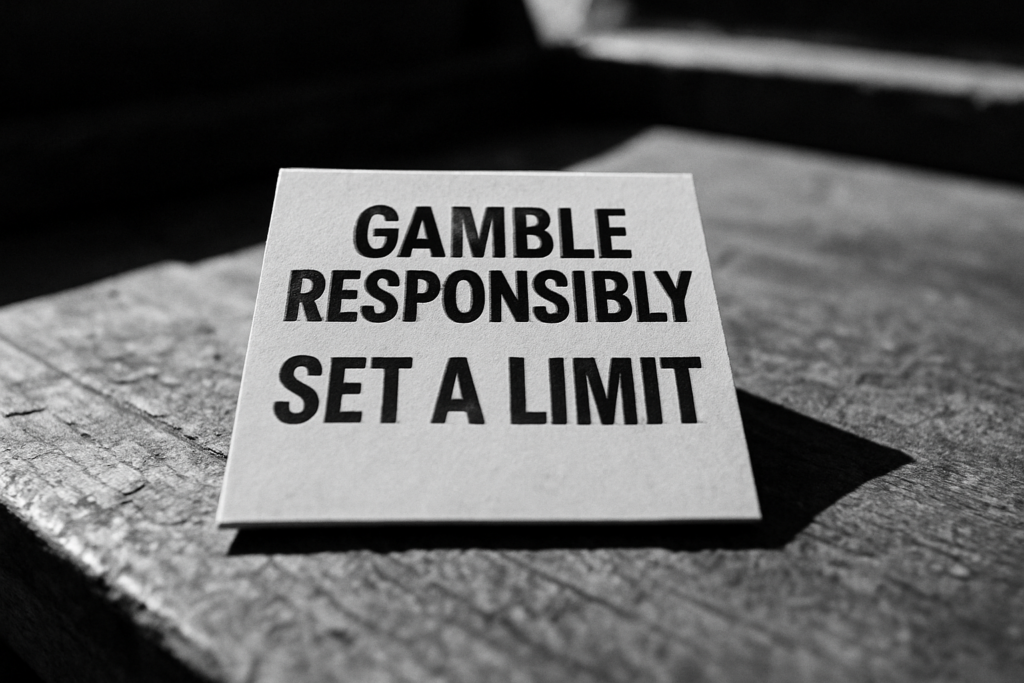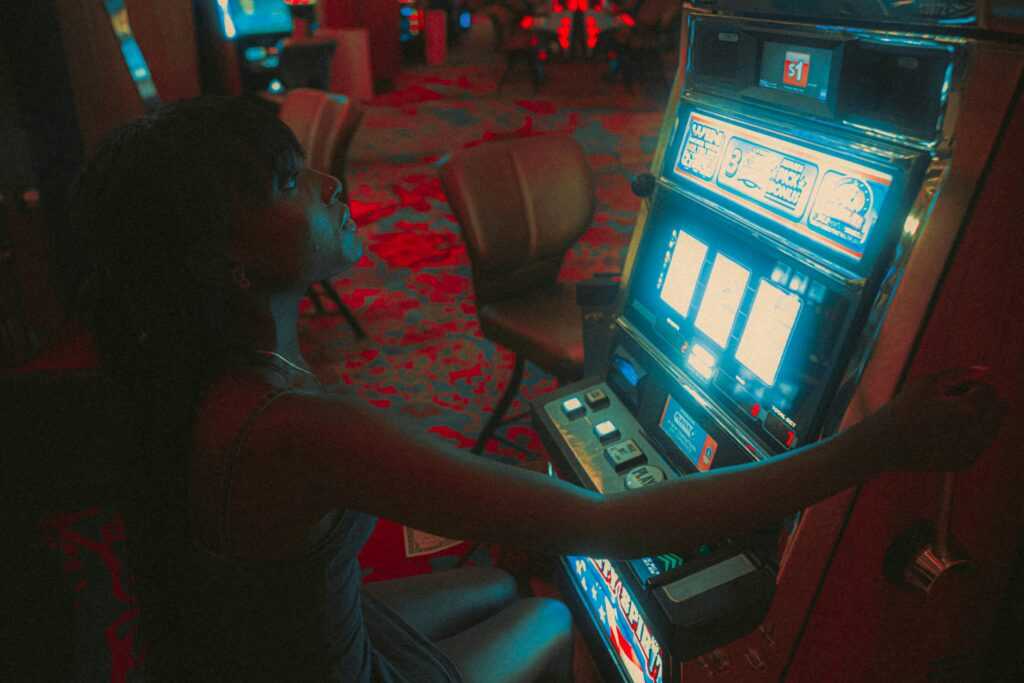Understanding the Appeal of Gambling
Gambling offers a unique mix of excitement, unpredictability, and potential rewards. The allure comes from the combination of entertainment and the possibility of winning money, which triggers feelings of anticipation and thrill. Games like poker, blackjack, and slot machines engage players with strategies or visual rewards that make the activity captivating.
Casinos, both physical and online, use design and psychology to enhance the appeal. Bright lights, immersive sound effects, and game variety create an environment that feels engaging and enjoyable. These elements keep players entertained and coming back for more.
Social interaction can also play a significant role in gambling’s attraction. Activities like poker nights or visiting casinos with friends foster a sense of camaraderie. For many, it serves as a way to relax and connect with others while participating in an exciting activity.
The combination of dopamine-driven excitement and the chance-based nature of gambling makes it particularly appealing. Players often focus on the possibility of success rather than the risk involved, making each session an exhilarating experience.
The Importance of Financial Responsibility in Gambling
Understanding financial responsibility in gambling ensures that the activity remains enjoyable without negatively impacting other areas of life. Maintaining control over your finances helps avoid unnecessary stress and long-term consequences.
Setting a Budget
Creating a clear budget for gambling prevents overspending. I determine a fixed amount of disposable income to use, ensuring essential needs and savings aren’t affected. For example, if I set aside $100 for a weekend at the casino, any potential losses end at that preset amount. This approach keeps gambling within a controlled and manageable range.
Tracking expenses helps reinforce the budget. I keep notes of wins and losses to stay informed of overall performance. Reviewing these records allows me to gauge patterns and adjust future limits accordingly, keeping spending in check over time.
Avoiding Emotional Spending
Staying mindful of emotions avoids impulsive decisions. I avoid gambling when feeling stressed, frustrated, or overly euphoric, as emotions can cloud judgment and lead to poor financial choices. For instance, chasing losses during discouraging times often results in exceeding thoughtful limits.
Developing disciplined habits minimizes emotional overspending. After a successful session, I resist the temptation to reinvest all winnings. Instead, I secure a portion in savings, allowing me to enjoy profits without risking them immediately.
Strategies to Balance Fun and Financial Responsibility

Finding a balance between enjoyment and financial diligence in gambling requires practical strategies. I focus on clear boundaries, disciplined habits, and a mindful approach to enhance both fun and control.
Knowing Your Limits
I ensure I set a maximum budget before gambling and treat it as an entertainment expense, not an investment. For example, I designate a fixed portion of my disposable income for gambling and avoid exceeding it, even after a significant win or loss. I monitor my spending closely to avoid dipping into funds meant for essential needs or savings.
Time Management While Gambling
I allocate specific time slots for gambling to prevent it from interfering with other responsibilities. For instance, I limit casino visits or online play to scheduled leisure times, treating them as planned recreational activities. Regular breaks during sessions help maintain focus and avoid getting too engrossed, ensuring I stay in control of both time and money.
Recognizing Gambling as Entertainment
I view gambling as a form of entertainment with costs attached, similar to attending concerts or movies. This mindset prevents me from expecting guaranteed winnings or chasing losses. By focusing on the excitement of the game and the overall experience, I maintain realistic perspectives, which keeps gambling enjoyable and free from unnecessary financial pressure.
Warning Signs of Problematic Gambling
Ignoring the warning signs of problematic gambling can lead to:
- financial strain
- stress
- relationship challenges
Recognizing these indicators helps maintain control and prevents gambling from becoming harmful.
Financial Red Flags
Tracking financial signs of problematic gambling helps identify issues early. I notice these key indicators:
- Mounting Debt: Accumulating credit card or personal loan debt to fund gambling activities indicates a lack of financial control. For example, constantly borrowing to gamble signals a recurring problem.
- Missed Payments: Falling behind on bills or responsibilities to prioritize gambling expenses shows poor money management. I always track these lapses to stay informed.
- Gambled Savings: Using emergency funds or savings for gambling disrupts long-term financial stability. Relying on essential reserves is a major concern.
- Chasing Losses: Increasing bets after losing to recover money highlights emotional decision-making over rational planning.
- Secrecy About Gambling: Hiding gambling activities from friends or family suggests guilt or shame tied to the habit. This secrecy can damage trust.
- Increased Time Gambling: Spending excessive time gambling at the expense of work, relationships, or hobbies signals an unhealthy imbalance in priorities.
- Persistent Preoccupation: Constantly thinking about gambling or planning the next session reveals an obsession rather than entertainment.
- Mood Swings Post-Gambling: Expressing irritation, anxiety, or depression following gambling losses reflects emotional dependence on outcomes.
Tips for Responsible Gambling
Applying practical strategies ensures gambling stays enjoyable and free from negative repercussions. Following a few essential tips encourages a balanced and thoughtful approach.
Take Breaks Regularly
Pausing during gambling sessions helps maintain focus and prevents impulsive decisions. I schedule breaks every hour to assess my emotions and spending. These pauses also allow me to re-evaluate my goals and ensure I stay within my limits. For longer sessions, I step away from the activity entirely to reset my mindset.
Use Gambling Tools and Resources
Leveraging tools and resources designed for responsible gambling can help maintain control. Budget trackers and limit-setting features on gambling platforms protect against overspending. Self-exclusion programs offer temporary blocks if gambling becomes overwhelming. I also explore educational content from reputable organizations like the National Council on Problem Gambling to stay informed.



 Sarah Guerra – Responsible Gambling Advocate
Sarah Guerra is a leading voice in responsible gambling, advocating for safer and more ethical gaming practices as part of her role at Gamble Wise Roll. With a background in psychology and gambling regulation, she is committed to raising awareness about the importance of harm reduction strategies, self-exclusion tools, and mental well-being in gaming. Through her articles and research, Sarah educates players about setting limits, recognizing signs of problematic gambling, and making informed choices when engaging with betting platforms. She also collaborates with industry stakeholders to encourage responsible gaming policies and initiatives. Her work ensures that Gamble Wise Roll remains a champion of balanced and mindful gambling experiences, emphasizing enjoyment without risk.
Sarah Guerra – Responsible Gambling Advocate
Sarah Guerra is a leading voice in responsible gambling, advocating for safer and more ethical gaming practices as part of her role at Gamble Wise Roll. With a background in psychology and gambling regulation, she is committed to raising awareness about the importance of harm reduction strategies, self-exclusion tools, and mental well-being in gaming. Through her articles and research, Sarah educates players about setting limits, recognizing signs of problematic gambling, and making informed choices when engaging with betting platforms. She also collaborates with industry stakeholders to encourage responsible gaming policies and initiatives. Her work ensures that Gamble Wise Roll remains a champion of balanced and mindful gambling experiences, emphasizing enjoyment without risk.
